
10 minute read
FAMILY WINERIES: LEGACY OF THE LAND
Legacy of the land
As tradition and innovation intertwine, Molly Nicholas discovers how family wineries are finding the balance between preserving heritage and embracing contemporary techniques.
In the realm of liquor retail, where tastes and trends change rapidly, the history and longstanding tradition of family-owned wineries offers an enriching experience for wine lovers, drawing on invaluable winemaking knowledge, which has shaped the industry that exists today.Rooted in generations of viticultural expertise and a unique connection to the land, family-owned wineries tell a story of authenticity that resonates with consumers. But how, as consumer palates evolve and winemaking practices advance, are they competing with emerging brands?
A labour of love
Elizabeth Calabria-Staltare, third-generation family member and Head of Marketing at Calabria Family Wine Group, grew up around the winery with fond memories of vintage season, and seeing firsthand the sacrifices her parents made to survive in the family business ignited her desire to carry on the family legacy.
“It was not an easy journey for our grandparents and parents who struggled financially for many years. We grew up watching my dad pivot the business in 1989 to wash bottles for other well-established wineries, just to give the winery some cash flow. Not romantic, but that hard work is what we remember,” she says.
“Dad has been an incredible source of stability, always sharing valuable advice about the industry’s ups and downs, which taught us to build resilience. It has always been important to bridge traditions and innovation, and remain committed to the family values, but also branch out.”
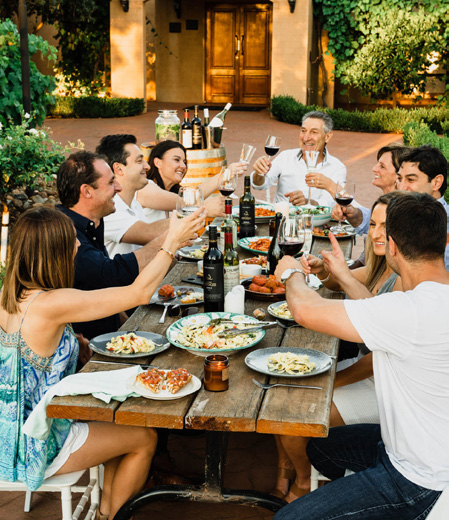
Fourth-generation family member and Head of Innovation for Brown Family Wine Group, Emma Brown agrees that family legacies are invaluable to winemaking.
“When you lose people, you often lose intel, but we have family who have been here since day dot, who can say, ‘yeah, we tried this style 40 years ago and here’s why it didn’t work’. It’s amazing how much we have used the information from our history and legacy to inform our innovation today.”
Along with their generational passion for winemaking, family wineries are often perceived as having a stronger connection to the land, usually rooted in the local culture and terroir and honouring traditional winemaking practices.
The future and sustainability of winemaking are important considerations for any winery, but with such a long-lasting history, environmental consciousness and sustainable agriculture is a top priority for Angove Family Winemakers.
Matt Redin, Marketing Manager at Angove Family Winemakers, says: “Embracing sustainability ensures that the business remains relevant and responsible in the face of changing consumer preferences and global challenges related to climate change and environmental degradation.
“Balancing the preservation of tradition with a forward-looking approach to sustainability contributes to the continued success and resilience of the winery in the years to come.”
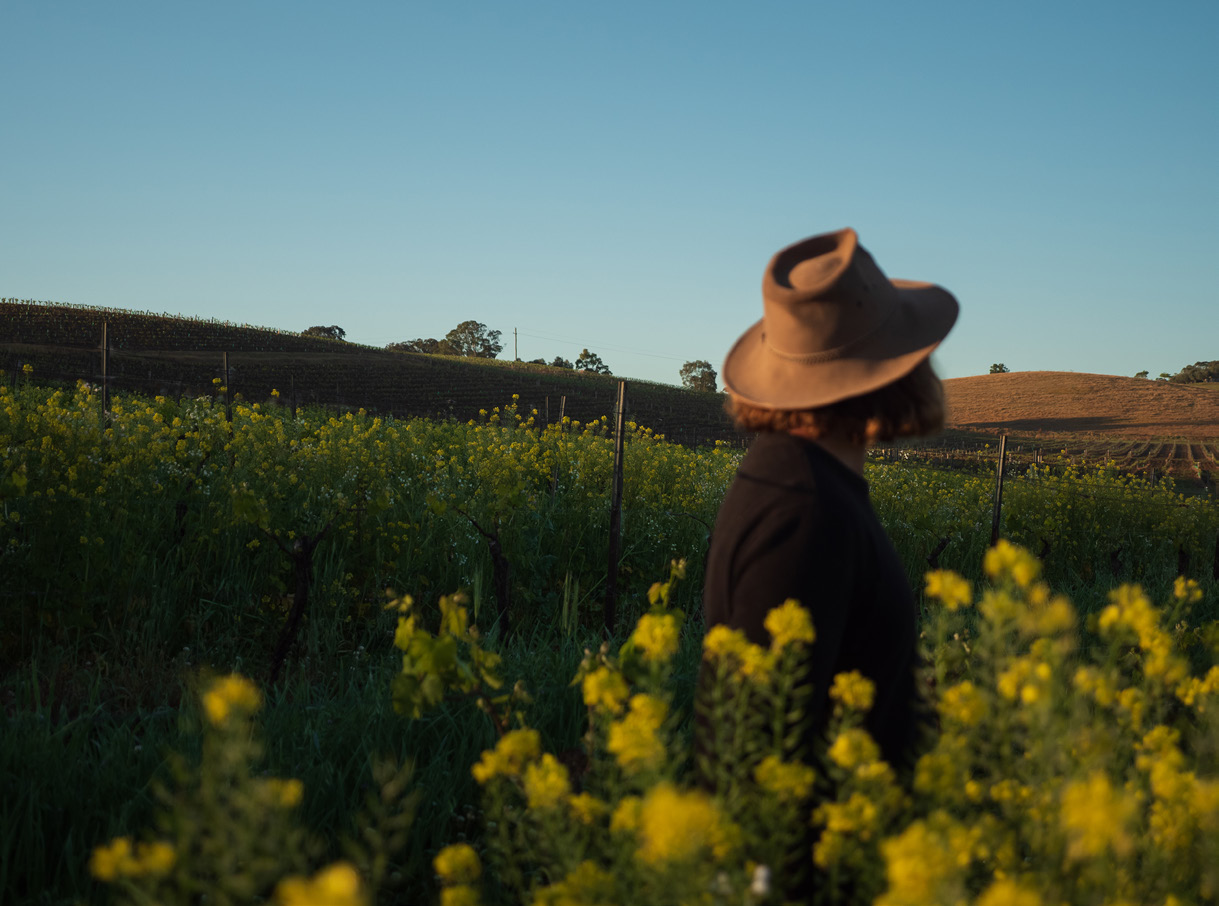
For Morris of Rutherglen, which is owned by Casella Family Brands, the history of the winery spans 160 years, making long-term sustainability of the land essential. Madden Morris, Chief Winemaker and sixth-generation Morris, says that as a generational winery, Morris strives to leave any vineyard or land that it works on in its best condition for the generations to come.
“At Morris, we see ourselves as stewards of the land and are entrusted to take the best possible care of our vineyard, winemaking and wine stock for future generations. Our industry depends so much on the land, and we need to show it the respect it deserves.”
Can tradition withstand innovation?
With tradition comes expectation, and it’s this element of family legacy that often challenges later generations. At Dal Zotto, Co-Owner Christian Dal Zotto says that he and his brother, Michael Dal Zotto, Chief Winemaker, honour tradition as much as they possibly can without letting it stifle innovation.
“In our family business, we try to upkeep and respect what it is that we have been brought into, while trying to keep up with an ever-changing market so that we can stay ahead of the game, it’s a balancing act.
It’s about being consumer-obsessed rather than winemaking-obsessed, and having the consumer at the heart of everything we do.
“As a tiny player in the world of wine giants, we can be quite dynamic. For us, embracing innovation means that we still have a connection to who we are and what our brand is. It’s got to show off our unique story, and the personal touch that we can give as a small family winery.”
Brown believes that generational knowledge helps Brown Family Wine Group stay true to its course and avoid knee-jerk reactions to market conditions, but it hasn’t prevented the winery from building a legacy steeped in innovation.
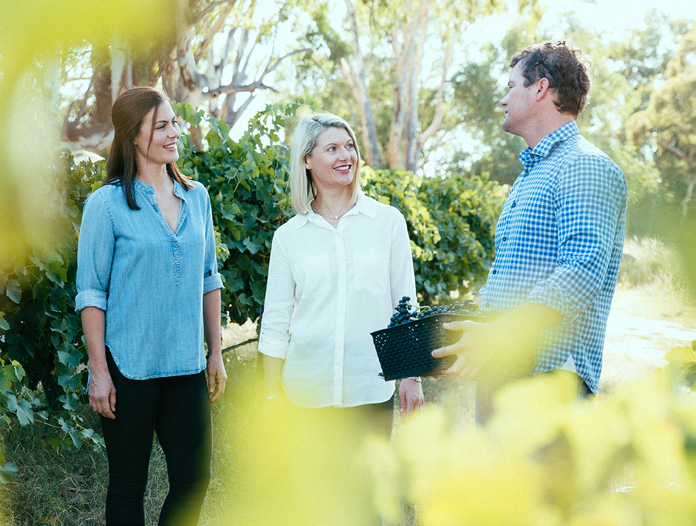
“Innovation is something that has driven our journey for the last 135 years,” she says. “That has meant that we’ve had to really hone in and become consumer obsessed. It’s about being consumer obsessed rather than winemaking obsessed, and having the consumer at the heart of everything we do.”
With not only wine, but the broader alcoholic beverage industry continually evolving, and consumer palates changing over time, staying ahead of such changes is crucial for the wine industry given the length of planning cycles.
Although traditional winemaking practices form the foundation at Morris of Rutherglen, each new generation has brought its own ideas to the table and incorporated newer techniques.
“If you ever stop learning or trying new things in any industry your competitors will pass you by. There can be a lot of trial and error with contemporary techniques, so we will start with smaller batch trials, then if successful it might be incorporated into our normal practice,” Morris explains.
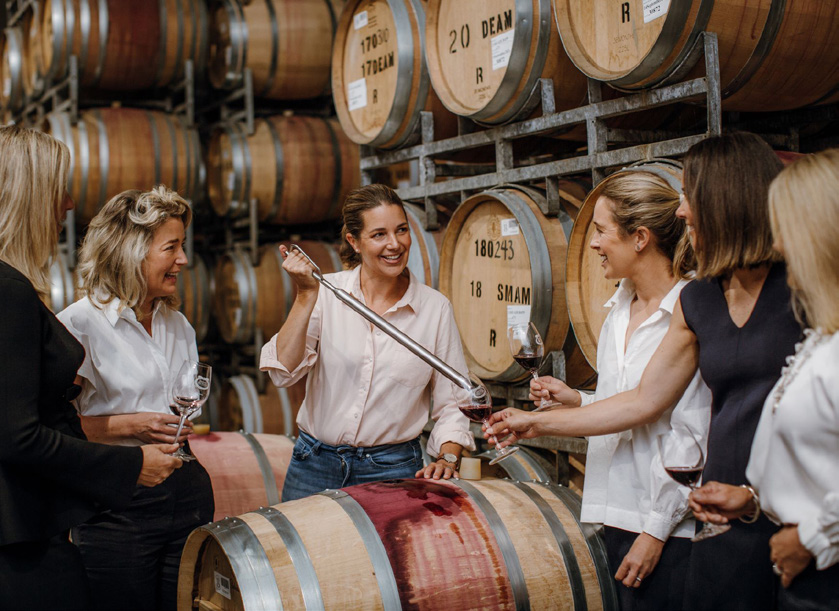
Hailing from Australia’s oldest commercial grape growing region, the Hunter Valley, Angus Vinden, second-generation winemaker and viticulturist at Vinden Wines, expresses the importance of understanding rules before trying to change them.
“Tradition is not stagnant, it should constantly be redefined as we learn from the previous generation. I believe it is my responsibility, just as O’Shea did up on the old hill, to continually redefine and reinvent the Hunter Valley.
“In a traditional region people hate change, but change is inevitable. I would rather be leading it through our regenerative farming and winemaking philosophies than being out of touch. The Hunter has always been a progressive winemaking region and we are seeking to help redefine new regional styles, which are respectful to our vineyards.”
Sharing this sentiment, Leanne De Bortoli, third-generation family member and Manager at De Bortoli Wines, cherishes what has happened in the past while acknowledging that the fabric of the business was formed around instincts.
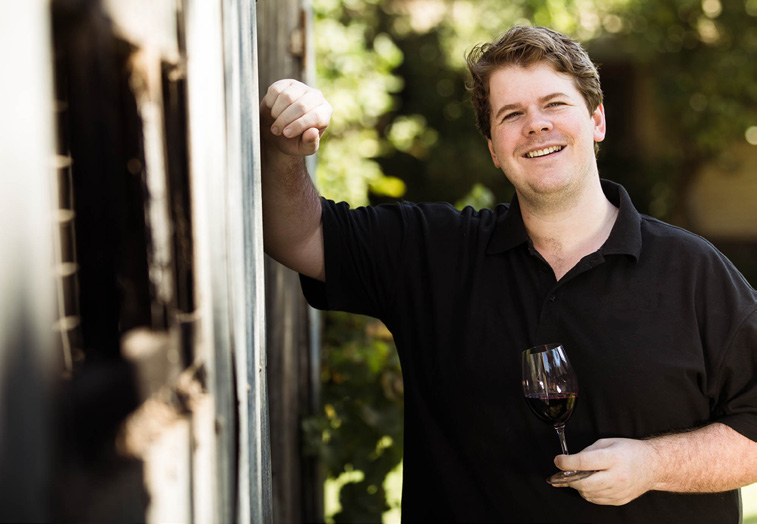
“We need to remind ourselves that [our founder] established a successful business based on what they saw as the community needs and interests at that time. There was a gap and they filled it.
“Fast forward a century and it is no different. We try to stay on top of the changing conditions whether it is climate change, differing preferences in style of wine or market conditions. We are trying to anticipate what and how wine consumers may drink in the future and respond to that need, and we are asking them to trust us.”
Consumer connection
In an age where consumers are seeking authenticity, family-owned wineries are well positioned to tap into this demand.
At Calabria Family Wines, Australian consumers have shown the family great appreciation of not only the wine, but the story behind the brand.
“Each bottle is marked with our family’s name and is a testament to our commitment, resonating with consumers who seek quality and authenticity,” says Calabria-Staltare.
“It is a heartfelt connection to generations past and future, it is a special touch to know that another family is sitting around the table enjoying a glass of wine that is crafted by our family.”
For family-owned businesses, building long-term relationships and consumer loyalty are essential to market endurance, and Dal Zotto says the real draw for consumers is knowing that there is a connection to something deeper than just a bottle of wine.
“The consumer loves the charm of knowing that their wine was crafted with care, and created by people who have their history entrenched in the soil of the vineyard. It’s the techniques and traditions passed down from generation to generation with pride and authenticity.”
Typically, we assume that older demographics may have a deeper connection to family winemakers, with a greater appreciation for tradition and storytelling.
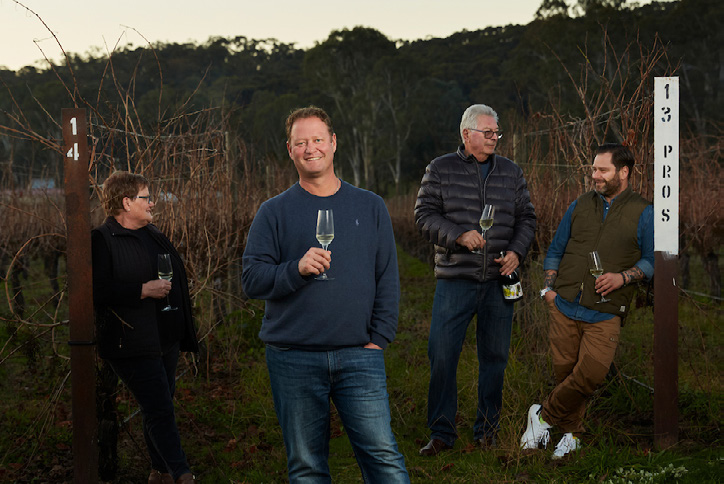
The consumer loves the charm of knowing that their wine was crafted with care, and created by people who have their history entrenched in the soil of the vineyard.
Speaking about consumers aged 35 and above, Redin says: “They are typically consumers who are more passionate about wine and view it as more than just a beverage. This group often values the craftmanship, history and unique stories associated with each bottle.”
In saying this, he also believes that family wineries are well positioned to connect to younger demographics through digital platforms, advising: “Younger consumers are generally not as knowledgeable about wine so try and speak in a voice and use language they understand – banging on about malolactic fermentation and different clones will lose them – talk more about what it gives the wine in terms of taste and appeal.”
In the retail environment, Warwick Brook, NSW State Manager for De Bortoli Wines, says the sense of trust and value associated with family-owned wineries, and loved by consumers, shouldn’t be forgotten.
“Place family brands in a prominent position within the store and let them shout from the shelves who they are and what they are,” he says. “Remember, always ask those companies to help with shouting, by merchandising and conducting consumer tastings where possible.” ■
Retail resurgence
Post-pandemic we have seen a drive from consumers to support Australian producers in all industries, and while Dal Zotto says that this shift has not gone unnoticed in winemaking, he believes local producers have also started to pay more attention to retailers.

“During Covid, we were all put on the spot and the thing that helped us survive was retail, which was challenging because a lot of our on-premise customers went through hard times, but we found an amazing position with our retail customers and formed great relationships.
“Overall, we found that we gained support in the marketplace, not just Dal Zotto, but winemakers as a collective. Retailers really stood behind what was local first, and they’re still doing it. Those that aren’t are finding out pretty quickly that consumers want to know their local wineries are being supported.”



